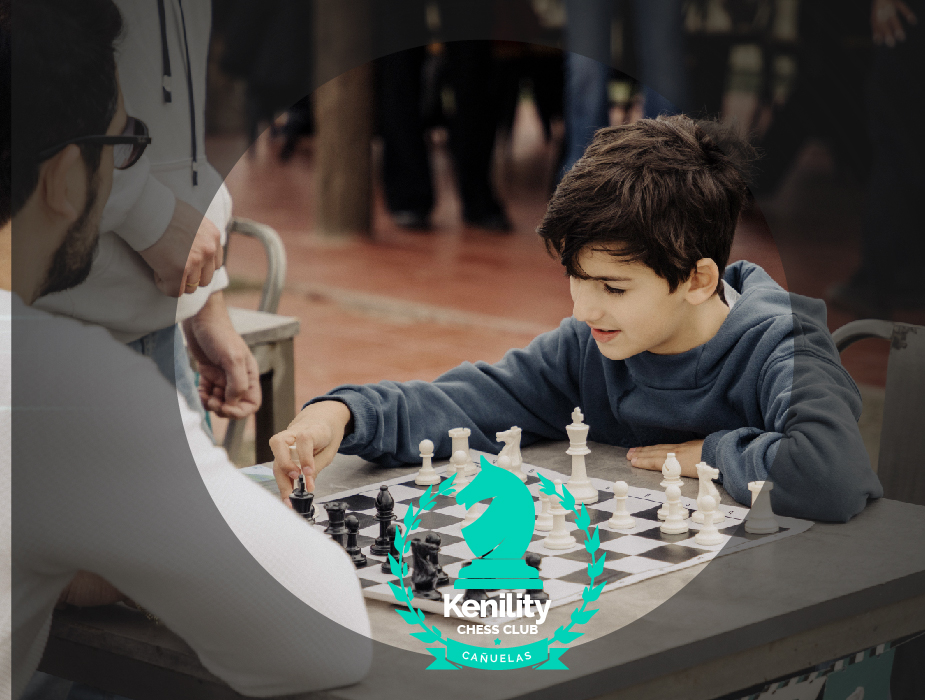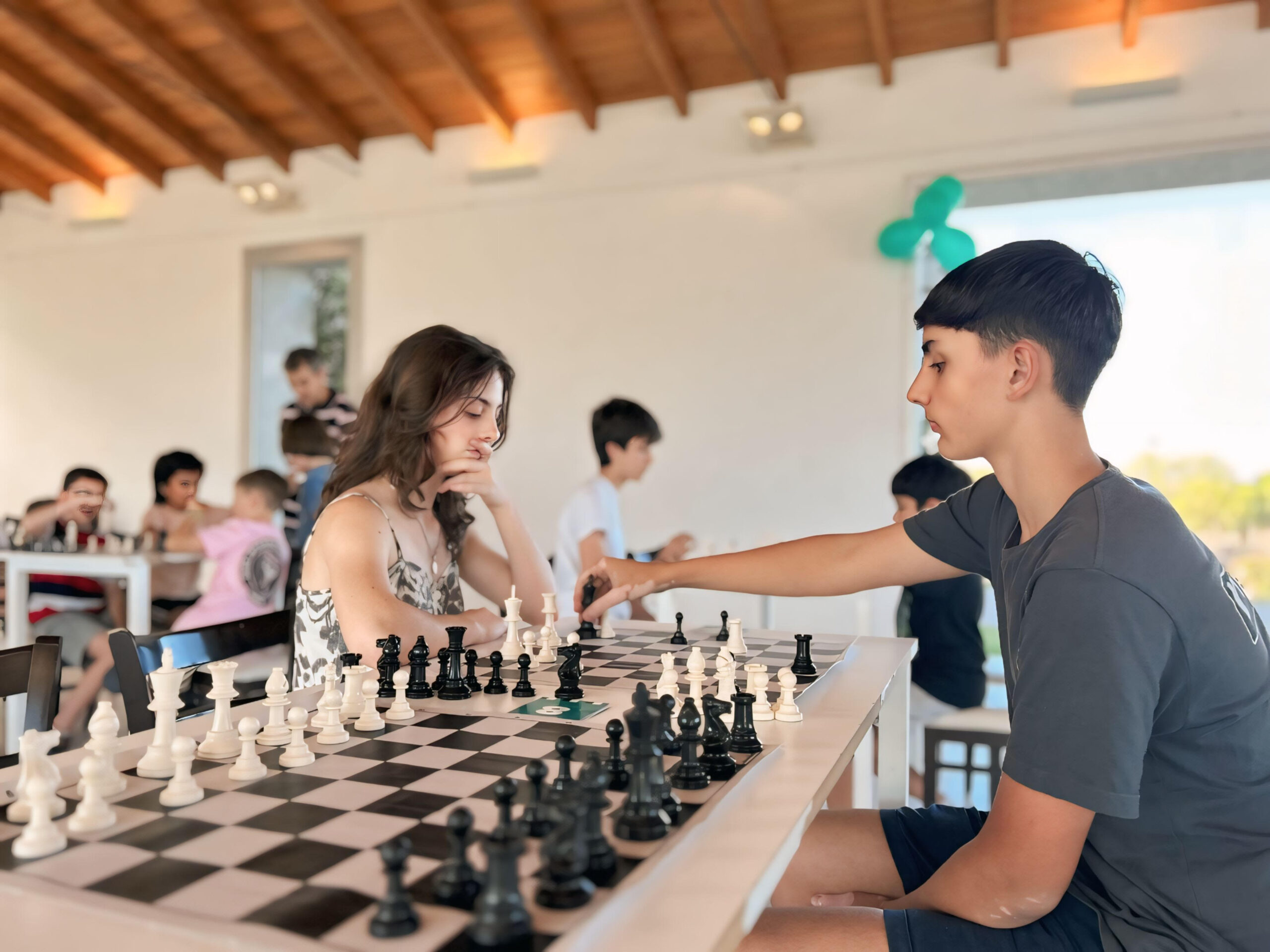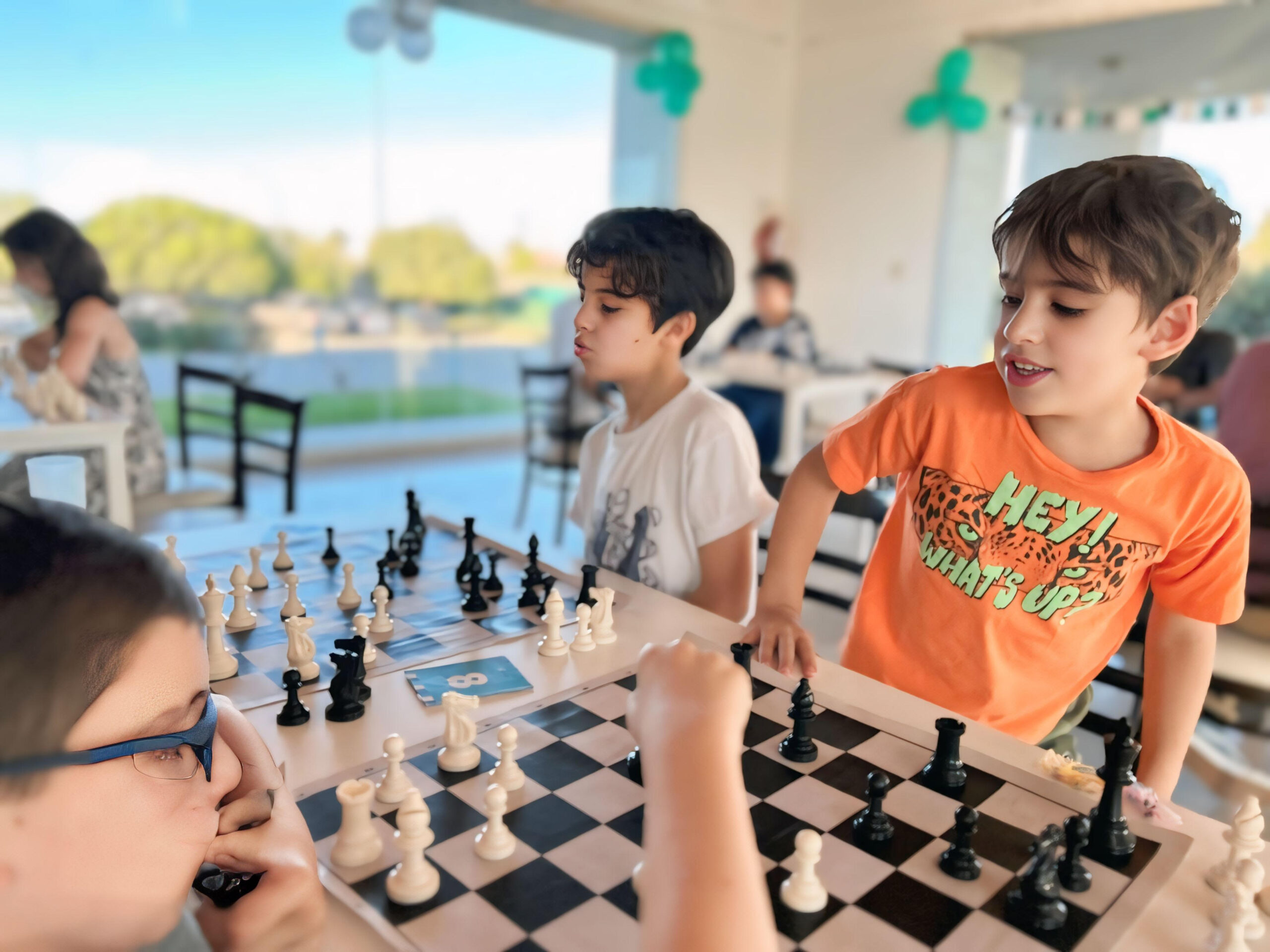Chess is a historical sport and a pillar of our team’s culture. Inspired by its many benefits, we opened a chess club for children with the premise that the earlier you learn to play, the sooner your brain can leverage its techniques and turn the game into a lifestyle.
It was a great afternoon shared with some sharp minds, eager to learn all about this fascinating sport and perfect their abilities. We even enjoyed the special visit of the king and queen of chess!
Here are some benefits of the sport:
Cognitive Benefits of Chess
- Enhances Problem-Solving Skills
Chess requires players to think critically, plan strategically, and anticipate consequences, honing their ability to solve complex problems effectively. - Improves Memory
Players must remember the rules, strategies, and opponents’ moves, strengthening both short-term and long-term memory. - Boosts Concentration
The game demands undivided focus, which helps players improve their attention span and ability to stay on task. - Develops Logical Thinking
Chess encourages logical reasoning by requiring players to evaluate multiple possibilities and choose the most advantageous course of action. - Promotes Creativity
The game stimulates creativity, particularly in finding innovative solutions to challenging positions or devising unexpected moves. - Enhances Mathematical Skills
Chess involves calculations, spatial reasoning, and probability assessment, all of which improve mathematical proficiency. -
Encourages Pattern Recognition
By identifying recurring positions and tactics, players sharpen their pattern recognition abilities, which are valuable in fields like science, technology, and engineering.
Emotional Benefits
- Teaches Patience
Chess is a slow-paced game that rewards patience and careful decision-making, qualities that translate to daily life. - Builds Resilience
Losing in chess teaches players how to accept setbacks, analyze mistakes, and bounce back with renewed determination. - Boosts Confidence
Mastering new strategies and achieving victories, even small ones, increases self-esteem and confidence. - Promotes Emotional Regulation
Chess players learn to manage frustration and remain composed under pressure, fostering emotional intelligence.
Educational Benefits
- Improves Academic Performance
Chess is linked to better grades in subjects like math, reading, and science due to its cognitive and analytical demands. - Encourages Lifelong Learning
Chess involves continuous learning, with opportunities to master new strategies, openings, and endgames. - Supports Multitasking Skills
Managing different elements of a chess game enhances a player’s ability to juggle multiple tasks simultaneously.
Social Benefits
- Encourages Teamwork
In team chess competitions or clubs, players collaborate, share insights, and work towards common goals. - Builds Friendships
Chess brings people together across cultures, fostering connections and mutual respect. - Enhances Communication
Discussing strategies, analyzing games, and teaching others improve verbal and non-verbal communication skills. - Promotes Inclusivity
Chess is accessible to people of all ages, genders, and backgrounds, creating an inclusive and diverse community.
Professional and Personal Growth
- Strengthens Decision-Making Skills
Evaluating options under time constraints mirrors real-life decision-making scenarios, sharpening this essential skill. - Teaches Accountability
Players take full responsibility for their moves, fostering a sense of accountability. - Fosters Discipline
Regular practice and study require commitment, instilling discipline and work ethic.
Health Benefits
- Stimulates the Brain
Chess activates both hemispheres of the brain, improving overall mental agility and keeping the mind sharp. - Reduces Risk of Cognitive Decline
Regular chess play is associated with a lower risk of conditions like dementia and Alzheimer’s. - Relieves Stress
The game offers an engaging escape, reducing stress and promoting relaxation.
Chess Benefits for Children
- Develops Academic Foundations
Chess strengthens foundational skills like counting, sequencing, and critical thinking, aiding early childhood education. - Teaches Responsibility
Kids learn that their decisions in the game directly impact the outcome, fostering personal responsibility. - Encourages Healthy Competition
Chess helps children handle both victory and defeat gracefully, building sportsmanship.
Chess is not just a pastime; it’s a multi-dimensional tool for mental, emotional, and social growth. Whether played casually or competitively, its benefits resonate far beyond the chessboard.
Classes start next Wednesday 4th at 6.30 pm at Cañuelas Golf Club. Check the Instagram account for more details.








